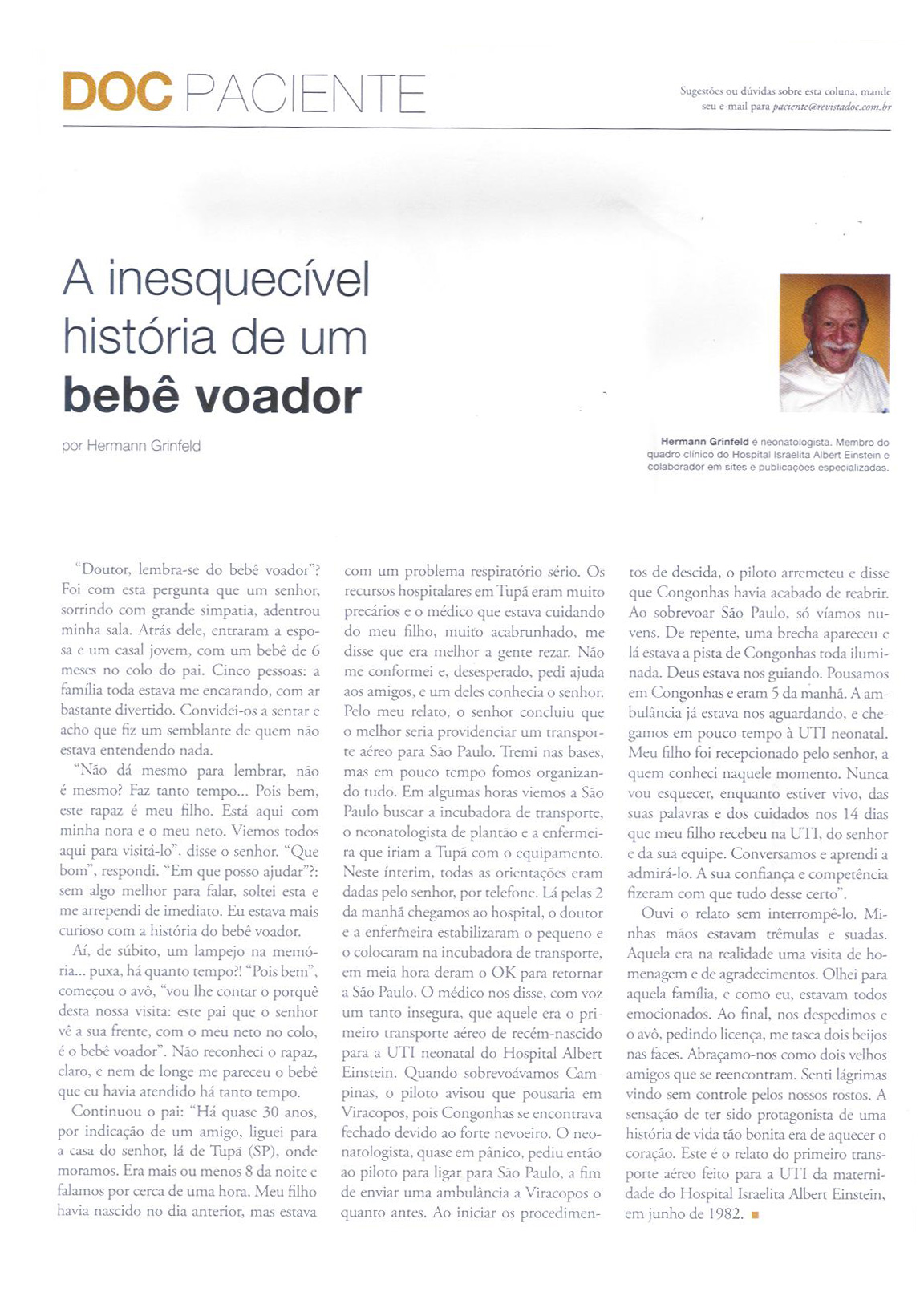artigos
A inesquecível história de um bebê voador
Confira o artigo publicado na Revista DOC do Rio de Janeiro:

clique na imagem para ampliar
Fetal alcohol syndrome in São Paulo
Alcoholism is a serious public health problem in many countries, including Brazil, where an estimated 10% of the population is dependent on alcohol. The reported incidence of fetal alcohol syndrome (FAS) varies from 0.5 to 3 per 1000 live births. Nearly all epidemiological studies of FAS have been conducted in the USA, where about 4% of pregnant women are daily drinkers and 1% can be considered 'heavy drinkers'. In a survey by the US National Institute on Alcohol Abuse and Alcoholism in 1997, the incidence of FAS was estimated as 9.7 per 10 000 live births, nearly 4000 new US cases per year.3 FAS is the leading known cause of mental retardation in the US.
There are few data on the incidence of FAS in Brazil. No data about FAS are available from the Secretary of Health of the State of São Paulo or in the Faculty of Public Health of the University of São Paulo, owing to lack of registration of cases. In one of the busiest obstetric departments (a public clinic linked to a university), the incidence of maternal alcoholism was about 6/1000 in 1997. We assembled data on FAS in São Paulo through personal interviews with genetic services linked to universities in the city. In the four genetic services in 1997, the incidence of FAS was 17/16 440 referred births, or about 1/1000. Babies referred to genetic clinics presumably have dysmorphology or other evidence of genetic problems, and therefore are more likely than the general population to have frank FAS. We find that the observed rate of FAS among babies referred for genetic services is similar to rates observed elsewhere for the general population.
The methods for identifying FAS are fraught with difficulty, as are surveys of alcohol abuse by women during pregnancy. There are difficulties regarding the recognition of the syndrome by misinterpreting its signs with other genetic or teratogenic disease. It would appear that, at present, FAS is under-diagnosed and under-reported in the city of São Paulo.


